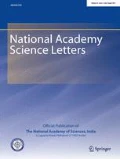Abstract
In the present investigation, twenty plant essential oils (EOs) are tested against Aedes aegypti at their egg stage aiming to control the mosquito population at its breeding site. The results are very much promising for EOs extracted from Allium sativum, Mentha piperita and Ocimum sanctum with sublethal concentration (LC50) of 1.00 ppm, 4.01 ppm and 8.40 ppm, respectively, which seems to be at par with WHO-recommended dose for synthetic larvicide temephos. Three plant oils responded with LC50 below 50 ppm. However, few plant oils did not show lethal effects at all. The effective EOs can in future be used in breeding sites including the potable and household water tank as these plants are edible and hence safe for consumption. These might be a potent candidate for decreasing Aedes population and for replacing synthetic insecticides against Aedes. Moreover, these three highly effective EOs would be accessible and cost-effective for common people to use.



References
Aknier MM, Eksi E (2015) Influence of five different larval control agents on oviposition of Culex pipiens L. (Diptera: Culicidae). J Eur Mosq Control Assoc 33:5–9
Sarma R, Khanikor B, Mahanta S (2017) Essential oil from Citrus grandis (Sapindales: Rutaceae) as insecticide against Aedes aegypti (L) (Diptera: Culicidae). Int J Mosq Res 4(3):88–92
Arivoli S, Tennyson S, Martin J (2011) Larvicidal efficacy of Vernonia cinerea (L.) (Asteraceae) leaf extracts against the filarial vector Culex quinquefasciatus Say (Diptera: Culicidae). J Biopesticides 4(1):37–42
Dubey RK, Jaya KR, Dubey NK (2007) Evaluation of Eupatorium cannabinum Linn. oil in enhancement of shelf life of mango fruits from fungal rotting. World J Microbiol Biotechnol 23(4):467–473
Samidurai K, Jebanesan A, Saravanakumar A, Govindarajan M, Pushpanathan T (2009) Larvicidal, Ovicidal and Repellent Activities of Pemphis acidula Forst. (Lythraceae) Against Filarial and Dengue Vector Mosquitoes. Acad J Entomol 2(2):62–66
Prowse GM, Galloway TS, Foggo A (2006) Insecticidal activity of garlic juice in two dipteran pests. Agric For Entomol 8:1–6
Warikoo R, Wahab N, Kumar S (2011) Oviposition-altering and ovicidal potentials of five essential oils against female adults of the dengue vector, Aedes aegypti L. Parasitol Res 109(4):1125–1131
Ramar M, Ignacimuthu S, Paulraj MG (2014) Ovicidal and oviposition response activities of plant volatile oils against Culex quinquefasciatus say. J Entomol Zool Stud 2(4):82–86
Sarma R, Adhikari K, Mahanta S, Khanikor B (2019) Combinations of plant essential oil based terpene compounds as larvicidal and adulticidal agent against Aedes aegypti (Diptera: Culicidae). Sci Rep. https://doi.org/10.1038/s41598-019-45908-3
Valarmathy D, Govindaraju M, Elumalai K (2011) Studies on ovicidal activity of plant essential oil formulation against the eggs of important vector mosquitoes, Anopheles stephensi (Liston), Culex quinquefasciatus (Say) and Aedes aegypti (L.) at laboratory condition. Int J Curr Res 3(6):378–381
Acknowledgement
The authors are very much grateful to University Grant Commission (UGC) for their financial support in the present study (Grant No. Z/BSR/2014-15). Authors are thankful to Head of the Department of Zoology, Gauhati University and Head of the Department of Botany, Gauhati University for their support and help.
Author information
Authors and Affiliations
Corresponding author
Additional information
Publisher's Note
Springer Nature remains neutral with regard to jurisdictional claims in published maps and institutional affiliations.
Rights and permissions
About this article
Cite this article
Sarma, R., Adhikari, K., Mahanta, S. et al. Twenty Essential Oils as Ovicidal Agent Against Aedes aegypti (Diptera: Culicidae). Natl. Acad. Sci. Lett. 43, 497–500 (2020). https://doi.org/10.1007/s40009-020-00923-1
Received:
Revised:
Accepted:
Published:
Issue Date:
DOI: https://doi.org/10.1007/s40009-020-00923-1

